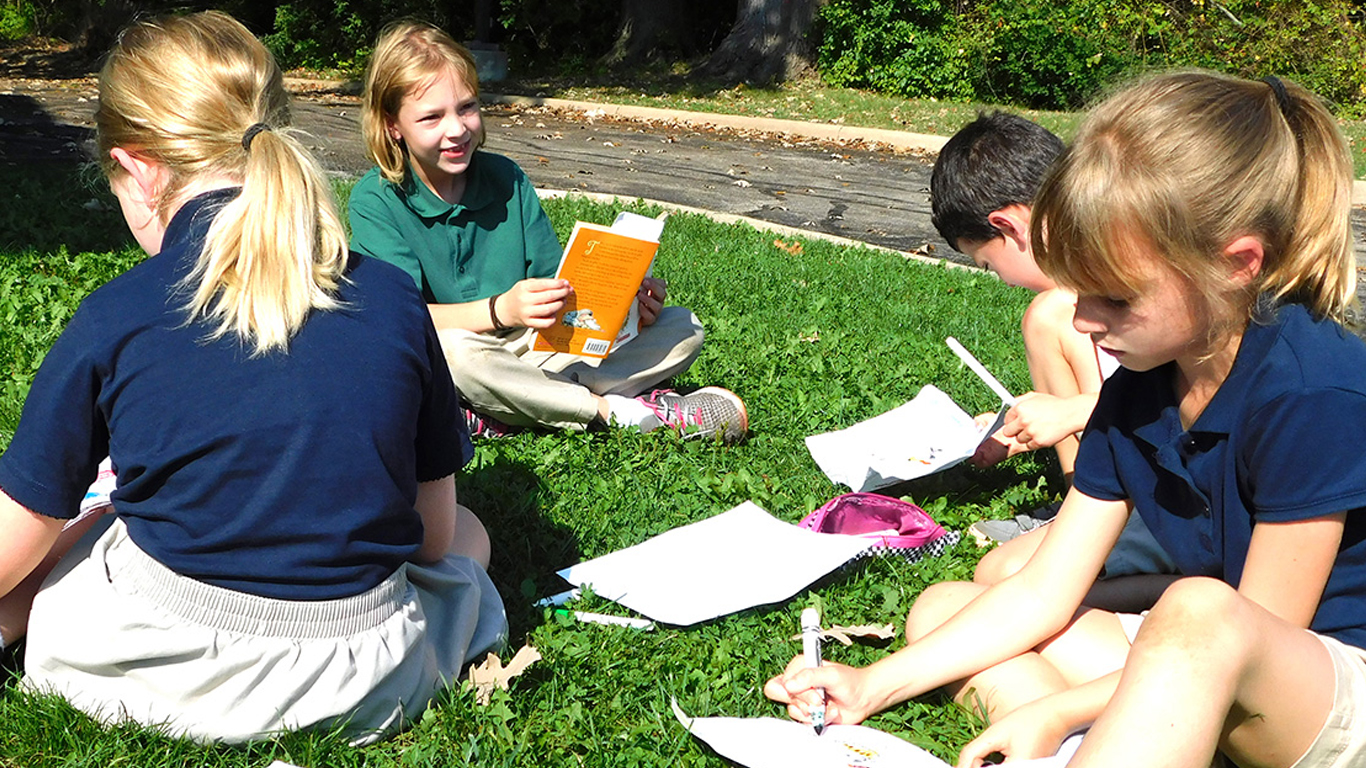Many of my colleagues—most of whom are engineers—are surprised to learn that Sarah and I send our children to a school that emphasizes ancient languages and literature rather than science, technology, engineering and math (STEM). For many the Classical part of my explanation is easier for them to understand and see the value of than the Christian part—which for me is the primary motivation for the emphasis on Classical education.
In the nearly two millennia since the resurrection of Christ, the church has been through persecutions, times of rapid expansion, periods of great triumph and also of deep sufferings from self-inflicted wounds. In every era, Christians have used metaphors to make sense of their times. In some ages the poverty and the sufferings of Christ was embraced as an apt picture of Christian experience, in others the riches of Christ’s Kingdom. For the earliest settlers of our nation, the image of Christ’s call to be “a city on a hill” helped to clarify their mission and give meaning to the many difficulties and sufferings associated with leaving one’s homeland to start over in a new home across the sea—more distant for them than the moon is for us.
The metaphor I find most helpful in understanding my own times and what I must do as a follower of Christ, is the picture of Nehemiah’s rebuilding of Jerusalem. When I look at the havoc caused by the broken marriages in my own family, breakdown of civil discourse televised in so-called political “debates”; when I observe how little Bible-knowledge is in evidence among church-goers and how little exposure those outside the church have to even the most basic Christian beliefs, I just don’t see much left to conserve. I see rubble. And I think to myself that it is time to start the long, slow, multi-generational process of rebuilding, of re-learning what has been lost. Turning back the clock is not my intent. It is hard to be romantic about a prior age in which pregnancies ending in the death of mother, child or both were grieved by every small community, nor do I wish to return to a time in which hard liquor was the only pain relief available to a person suffering an invasive surgery or all-to-common amputation. I am grateful to God for advances which have allowed us to enjoy so much prosperity, but I am also eager to see that my children grow up asking what that prosperity is for and seeking joys that personal peace and affluence cannot provide.
The Classical Christian approach to education, particularly the upper-school disciplines of logic and rhetoric, emphasizes critical thinking and communication. While STEM subjects help us to better understand our physical world and to solve problems related to our physical well-being, the Classical Christian approach insists that we must not neglect the hard questions about what we ought to do and why. If we could grow human organs for transplant inside the body of a pig, should we? Rather than being a merely academic exercise or supplying us with needed skills for service in our workplaces, churches and communities, Mortimer J. Adler, chairman of the Encyclopædia Britannica’s Board of Editors from 1974 to 1995, argued that the skills involved in reasoning and wrestling with others about such matters are critical to the survival of our democracy.
The curricula of a Classical Christian School, particularly upper school logic and rhetoric, seek to ground students in their own history—especially the history of ideas—by giving them direct access to the writings of those who shaped it, so that they become skilled in interpreting evidence and weighing arguments. If my children are to grow up to be people of the Book, they must be skilled in the close reading of texts. As they evaluate what they hear inside and outside our churches, I want them to do so with the benefit of familiarity with centuries of Christian writings. If they are to be rebuilders, they must be able to reason with and persuade others. They must not be characterized by a party spirit, but persuaded to change their thinking in the face of sound arguments, evidence and principled appeals.
While many of my colleagues share my concerns about the deterioration of civil discourse and the value of an education which emphasizes critical thinking and communication, the bits about knowing our Creator and walking with our Savior and having our minds set on things above do not compute. For me they are inseparable. Without the foundation of God’s transcendent goodness, beauty and truth, even a Classical education will eventually lead back to where we are now, each of us living by our own lights as they are the only lights we have. We have no ultimate basis for appeal which allows us to reason toward a common understanding. On the other hand, pursuing a Christianeducation which lacks the rigor of the Classical leaves my children without the skills, perspective and humility they need to be rebuilders, and we risk talking well-intentioned but nevertheless misguided steps in the wrong direction.
Of course, neither I nor my children will be rebuilders without the work of the Holy Spirit, softening our hearts. Meekness and repentance must come before the boldness for Christ to which we are called. Our children need to see the love of Christ to build in them the desire to be connected to Christ and to his church, “living members of Christ’s body.” Sarah and I are grateful to God that our children spend their school-days among teachers whose love for Christ is exemplified and continually poured into our kids. What a blessing WCA has been to our family!







